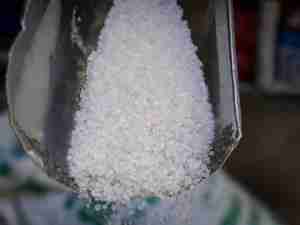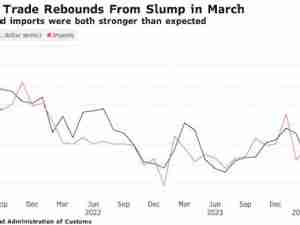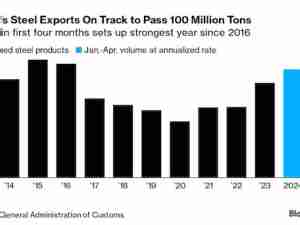Putin Earns Failing to Average Grades as Economy Takes Back Seat
By: Andre Tartar | Dec 29 2015 at 04:00 PM | International Trade
Let the blame game over Russia’s economic travails begin.
President Vladimir Putin scored an F, the lowest possible, from 27 percent of respondents in a Bloomberg survey that invited them to assess his management of the economy in crisis. An additional 50 percent gave him the next two poorest grades, with a single person saying the Russian leader deserved an A, the highest mark. The majority of the 22 economists in the poll rated the central bank a B, which was also the most common grade assigned to the Finance Ministry.
“All the economic miseries are amplified by international sanctions which were brought upon Russia by its foreign policy in Ukraine,” said Nerijus Maciulis, chief economist at Swedbank AB in Vilnius, Lithuania. “And the man who presumably orchestrated them deserves only an F.”
Russia is paying the price for a crisis set off with Putin’s incursion into Ukraine last year, which started when oil prices were near $110 a barrel. The international sanctions that followed, compounded by an unrelenting stream of cheap crude and the ruble’s collapse, have the world’s biggest energy exporter on the brink of its longest recession in two decades.
With Brent crude, used to price Russia’s main export blend Urals, now trading near $37, the ruble has lost about 50 percent of its value since Putin requested parliamentary approval to deploy troops in Ukraine on March 1, 2014. The central bank predicts gross domestic product will contract as much as 1 percent next year if Urals averages $50.
Nabiullina, Siluanov
Prime Minister Dmitry Medvedev and the rest of the cabinet were each given a C more often than any of the other grades, according to the survey. Putin, meanwhile, ended with the lowest median mark, and the central bank and the Finance Ministry had the highest. The poll asked respondents to grade the performance of Russia’s leaders and institutions given the tools at their disposal.
While the central bank, led by Governor Elvira Nabiullina, has struggled to bring down inflation, it won praise from economists for cutting the ruble loose last year and stabilizing the financial system. Finance Minister Anton Siluanov has fought to keep a lid on the budget deficit, warning that Russia may exhaust both of its sovereign wealth funds in 16 months to two years if it continues to rely on the reserves without scaling back spending.
“In general, the central bank and the Finance Ministry were most effective and with realistic expectations,” said Gunter Deuber, an analyst with Raiffeisen Bank International AG in Vienna.
Pointing Fingers
Top officials including Putin and Medvedev have blamed sanctions, lower commodity prices and the standoff over Ukraine for helping push the economy into its first recession since 2009. The takeover of Crimea from Ukraine, which prompted the U.S. and the European Union to levy penalties against Russia, exacted a price estimated at 1.5 percent of gross domestic product, or 25 billion euros ($27 billion) in 2014, and the toll is set to grow multifold this year, Medvedev has said.
“All revolves around the decisions of Mr. Putin, the real and possibly only policy maker in Russia,” said Cristian Maggio, the London-based head of emerging-market research at Toronto Dominion Bank who gave the president a C. Russia’s foreign policy “involves clear economic repercussions that the government and the presidency have not been able to turn around.”
The International Monetary Fund estimated in a staff report in August that sanctions enacted over Ukraine may initially cut Russia’s real GDP by 1 percent to 1.5 percent. Prolonged curbs may result in a cumulative loss of as much as 9 percent of economic output in the medium term, it said.
More Pain
The stranglehold of economic penalties, which isolated some of the country’s largest companies from foreign capital markets, isn’t about to ease up. Only 9 percent of analysts expect the U.S. to relax its sanctions in the next 12 months, down from 20 percent when the question was asked in November. Fifty-two percent predict the EU will begin to loosen its restrictions in the next calendar year, compared with 56 percent a month earlier.
The U.S. Treasury Department expanded sanctions related to Russia’s role in the Ukrainian crisis last Tuesday, adding 34 companies and people to its list. A day earlier, the EU renewed its curbs for another six months as questions remained over the implementation of a peace plan in Ukraine.
Although facing one of the toughest challenges of his 16- year-rule, with incomes falling the most since he came to power, Putin’s public approval recently touched a record high amid airstrikes in Syria against Islamic State and other militants. His support was at 85 percent in December, according to a survey by the Levada Center research company.
“Both politically and economically, he liked to play the national card—that is, looking abroad for the reasons of Russia’s economic misery,” said Wolf-Fabian Hungerland, an economist at Berenberg Bank in Hamburg, Germany, who gave Putin an F. “Instead, he could have taken a geopolitically more collaborative and domestically more reform-oriented route.”









